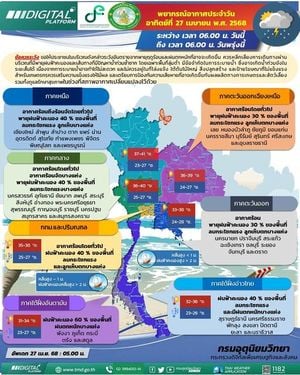On April 16, 2025, the UK Supreme Court made a landmark ruling that the legal definition of a woman under the Equality Act 2010 does not include transgender women who hold gender recognition certificates (GRCs). This decision has been hailed by prominent figures, including author J.K. Rowling, as a significant victory for gender-critical campaigners.
The ruling was delivered by a panel of five Supreme Court justices, who unanimously determined that the terms "woman" and "sex" in the Equality Act refer specifically to biological women and biological sex. Lord Hodge, one of the justices, emphasized that this interpretation does not disadvantage transgender individuals, who are still protected under the law against discrimination based on gender reassignment.
J.K. Rowling, known for her outspoken views on gender issues, expressed her support for the ruling on X, formerly known as Twitter. She stated, "It took three extraordinary, tenacious Scottish women with an army behind them to get this case heard by the Supreme Court and, in winning, they’ve protected the rights of women and girls across the UK. @ForWomenScot, I’m so proud to know you." Her comments reflect her ongoing commitment to advocating for women's rights amid the contentious debate surrounding transgender issues.
The court's decision has stirred a variety of reactions across the political and social spectrum. A spokesperson for the UK government stated that the ruling brings "clarity and confidence" for women and service providers, such as hospitals and refuges, affirming that single-sex spaces are protected by law. They noted, "Single-sex spaces are protected in law and will always be protected by this government." This sentiment resonates with many who believe that the ruling reinforces the rights of women in various public spheres.
Connie Shaw, a gender-critical campaigner, celebrated the Supreme Court's decision, exclaiming, "Flippin’ get in!" Shaw's enthusiasm captures the excitement among those who advocate for a definition of womanhood that aligns strictly with biological sex. This ruling is seen as a pivotal moment in the ongoing debate over gender identity and women's rights in the UK.
However, not all reactions have been positive. Scottish Trans, a charity advocating for transgender rights, urged people to "not panic" following the ruling. They cautioned against overreacting to the decision and promised to analyze the judgment closely to understand its implications. In a statement, they wrote, "We’d urge people not to panic – there will be lots of commentary coming out quickly that is likely to deliberately overstate the impact that this decision is going to have on all trans people’s lives." This perspective highlights the concern among many in the transgender community about the potential ramifications of the ruling.
The Supreme Court's judgment followed a lengthy legal battle initiated by the campaign group For Women Scotland (FWS), which challenged the Scottish government's interpretation of the term "woman" in legislation mandating female representation on public boards. The FWS argued that the definition should exclude transgender women, asserting that it is crucial to recognize biological sex in legal contexts.
In their 88-page ruling, the justices noted that while the term "biological" does not explicitly appear in the Equality Act, the ordinary meaning of the terms "woman" and "sex" aligns with biological characteristics. They stated, "If sex means biological sex, then provided it is proportionate, the female-only nature of the service would permit the exclusion of all males including males living in the female gender regardless of GRC status." This interpretation aims to clarify how single-sex services can be provided without infringing on the rights of transgender individuals.
The ruling has significant implications for transgender rights in the UK, particularly regarding access to single-sex spaces. The justices clarified that while the ruling does not diminish protections for transgender individuals, it allows for the potential exclusion of transgender women from certain services if deemed "proportionate." This nuanced approach aims to balance the rights of women and the protections afforded to transgender individuals.
In the wake of the ruling, various public figures have voiced their opinions. Maya Forstater, a gender-critical activist, expressed her delight, stating, "Absolutely delighted with this. The judgment puts women's rights back at the heart of the Equality Act." Conversely, author Shon Faye criticized the ruling, emphasizing that it perpetuates a hostile environment for transgender individuals and could have dire consequences for them.
Rowling's involvement in the gender debate has not been without controversy. She has faced backlash from various quarters, including former cast members of the Harry Potter series, for her views on transgender issues. Her stance has made her a polarizing figure, with supporters praising her for standing up for women's rights, while critics accuse her of undermining transgender rights.
Despite the divisive nature of the discussion, the Supreme Court's ruling has undeniably shifted the landscape of gender identity discourse in the UK. The decision underscores the ongoing tension between the rights of women and the rights of transgender individuals, a debate that shows no signs of abating.
As the legal and social implications of this ruling unfold, both sides of the debate continue to grapple with its consequences. The ruling serves as a reminder of the complexities surrounding gender identity and the importance of dialogue in addressing these sensitive issues.
In the coming weeks and months, the ruling's impact will likely be felt across various sectors, including healthcare, education, and public policy. As stakeholders navigate the implications of the decision, the conversation around gender identity and women's rights remains at the forefront of societal discourse.









